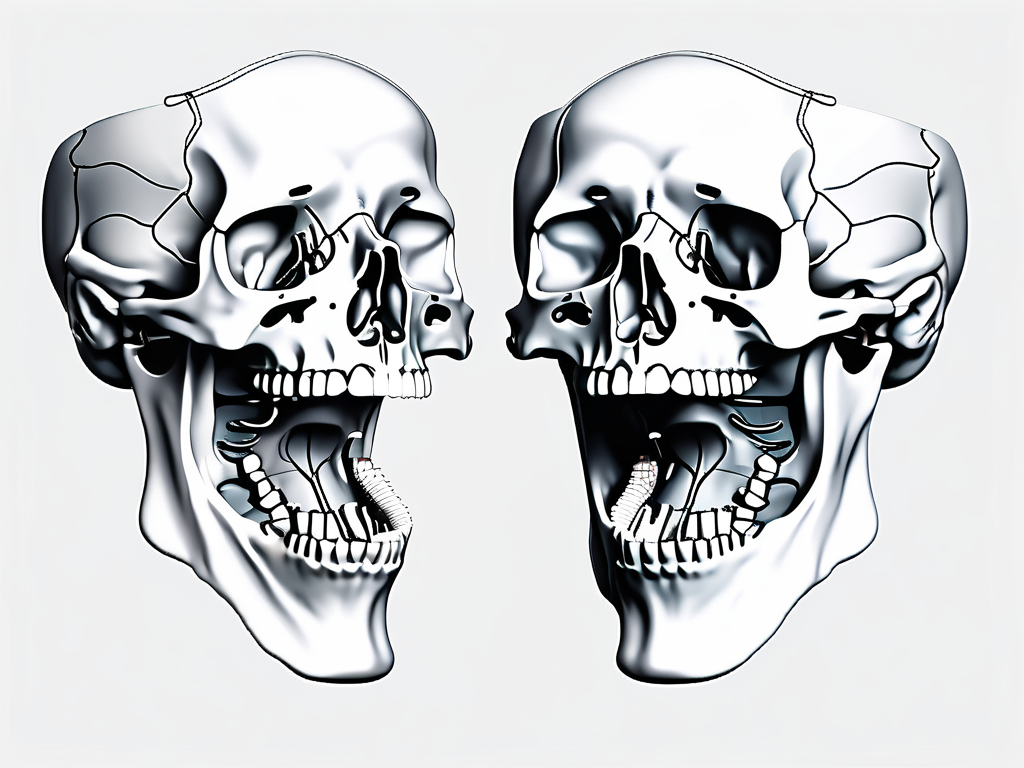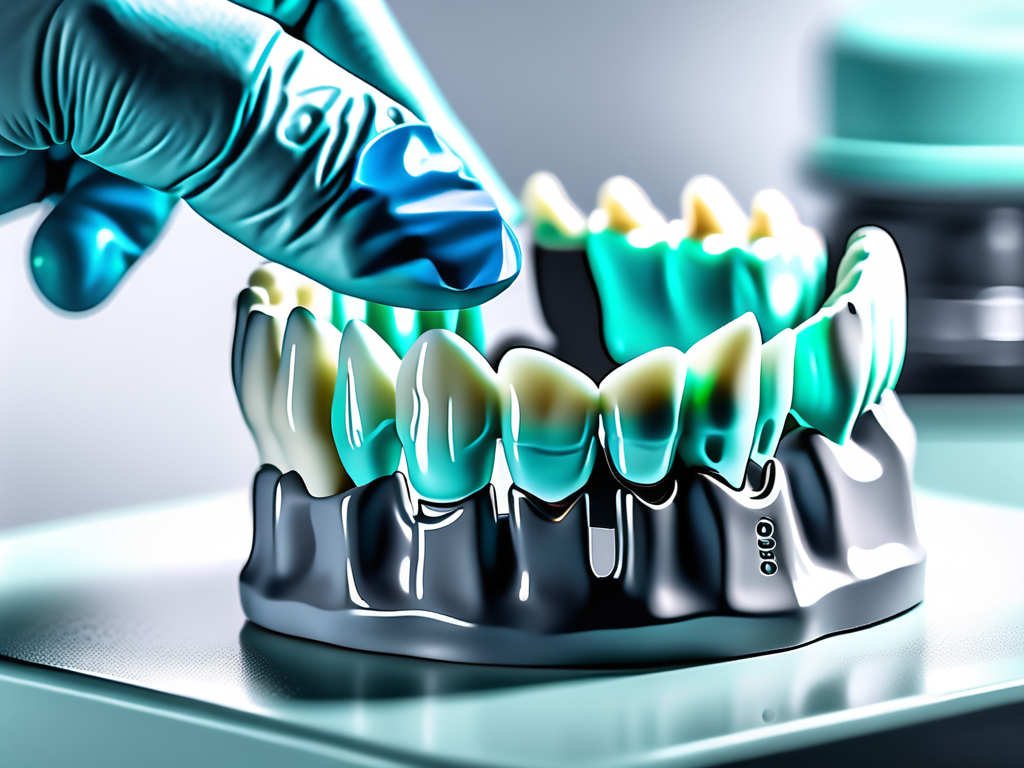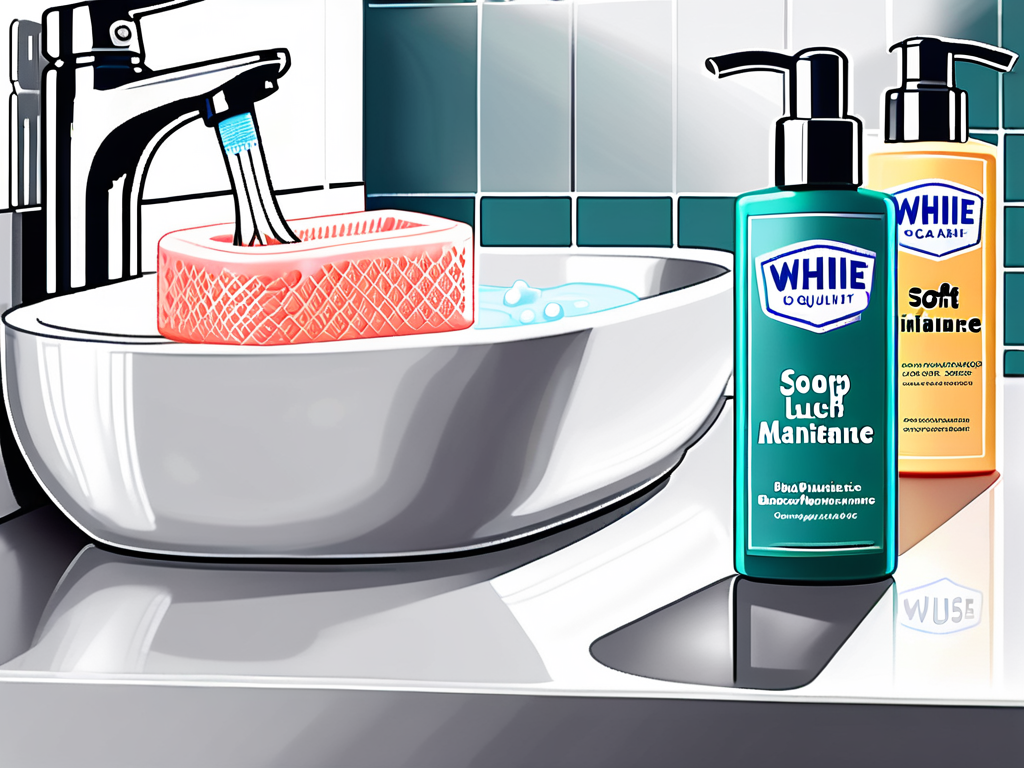Temporomandibular joint (TMJ) disorders can cause pain and discomfort in the jaw joint and muscles that control jaw movement. These disorders can be debilitating, affecting your ability to eat, speak, and even sleep. While the exact cause of TMJ disorders is not always clear, factors such as teeth grinding, jaw clenching, and arthritis can contribute to their development.
Understanding TMJ Disorders
TMJ disorders occur when the temporomandibular joint, which connects the jawbone to the skull, becomes damaged or misaligned. This can result in a variety of symptoms that can greatly impact your quality of life.

It's important to note that the temporomandibular joint is one of the most complex joints in the human body, allowing for the intricate movements required for speaking, chewing, and swallowing. When this joint is not functioning properly, it can lead to a range of discomfort and pain.
Symptoms of TMJ Disorders
The symptoms of TMJ disorders can vary from person to person and may include:
- Jaw pain or soreness
- Facial pain
- Difficulty chewing
- Clicking or popping noises when opening the mouth
- Locking of the jaw
- Headaches
In some cases, individuals with TMJ disorders may also experience ear pain, ringing in the ears (tinnitus), dizziness, and even neck and shoulder pain. These symptoms can be debilitating and have a significant impact on daily activities such as eating, speaking, and even smiling.
Causes and Risk Factors
While the exact cause of TMJ disorders is often unknown, several factors can contribute to their development. These include:
- Bruxism (teeth grinding)
- Jaw clenching
- Arthritis
- Malocclusion (incorrect bite)
- Trauma to the jaw
Furthermore, stress and anxiety can also play a role in exacerbating TMJ disorders, as they can lead to increased muscle tension in the jaw and facial area. Additionally, poor posture and habits such as nail-biting or chewing on pens can put extra strain on the temporomandibular joint, contributing to the development of these painful conditions.
The Role of Mouth Guards in TMJ Treatment
Mouth guards are custom-made oral appliances that can help alleviate the symptoms of TMJ disorders. They are typically worn while sleeping and work by providing a cushion between the upper and lower teeth, preventing teeth grinding and excessive jaw clenching.
TMJ disorders, or temporomandibular joint disorders, can cause a range of symptoms such as jaw pain, headaches, and difficulty chewing. Mouth guards play a crucial role in managing these symptoms by promoting proper jaw alignment and reducing muscle tension.
How Mouth Guards Work
Mouth guards help reduce the strain on the jaw joint and muscles by redistributing the forces exerted during teeth grinding or clenching. They also help to protect the teeth from excessive wear and damage.
By creating a barrier between the upper and lower teeth, mouth guards help to minimize the impact of bruxism, a common condition characterized by grinding or clenching of the teeth. This not only alleviates discomfort but also prevents further damage to the teeth and surrounding structures.
Benefits of Using Custom Mouth Guards
Custom mouth guards offer several advantages over over-the-counter options. They are specifically designed to fit your unique bite, ensuring optimal comfort and effectiveness. Custom mouth guards are typically made from high-quality materials, making them more durable and long-lasting.
Furthermore, custom night guards are crafted by dental professionals who take precise impressions of your teeth. This personalized approach ensures a snug fit that is both comfortable to wear and provides maximum protection. Unlike generic mouth guards, custom-made appliances are tailored to address your specific needs and offer superior results in managing TMJ symptoms.
The Process of Getting a Custom Mouth Guard
If you are experiencing symptoms of a TMJ disorder, seeking professional help is paramount. The process of getting a custom mouth guard typically involves the following steps:

Creating Your Custom Mouth Guard
If a custom mouth guard is deemed appropriate for your TMJ disorder, your dentist will take impressions of your teeth to create a mold. This mold will then be used to fabricate a custom-made mouth guard that fits your teeth and bite precisely.
The process of creating a custom mouth guard involves meticulous attention to detail to ensure a comfortable fit and optimal effectiveness. Your dentist will carefully adjust the mouth guard to align with your jaw's natural position, providing support and protection for your temporomandibular joint while you sleep.
Maintaining and Caring for Your Mouth Guard
To ensure your custom mouth guard continues to provide optimal protection and relief, it is essential to maintain proper care and hygiene.

Proper care of your mouth guard not only ensures its longevity but also plays a crucial role in your oral health. By following a few simple steps, you can keep your mouth guard in top condition, providing you with comfort and protection night after night.
Cleaning Your Mouth Guard
After each use, rinse your mouth guard with warm water to remove any debris or saliva. Gently brush it with a soft toothbrush and mild soap or non-abrasive toothpaste. This gentle cleaning routine helps prevent the buildup of bacteria and plaque on your mouth guard, maintaining its cleanliness and extending its lifespan.
In addition to daily cleaning, it is recommended to periodically soak your mouth guard in a denture cleaner or a mixture of water and vinegar to disinfect it thoroughly. This extra step helps eliminate any lingering germs and odors, keeping your mouth guard fresh and hygienic.
When to Replace Your Mouth Guard
Over time, mouth guards may wear down or become less effective. Regularly inspect your mouth guard for signs of deterioration, such as cracks, discoloration, or a loose fit.
It is important to remember that a worn-out mouth guard not only compromises its protective abilities but can also harm your oral health. A damaged mouth guard may cause discomfort, lead to jaw pain, or even contribute to teeth misalignment. By staying vigilant and replacing your mouth guard when necessary, you can ensure continued oral health and comfort.
Other Treatment Options for TMJ Disorders
While custom mouth guards are an effective treatment for many individuals with TMJ disorders, they may not be suitable for everyone. In such cases, alternative treatment options may be recommended.
Physical Therapy and Exercises
Physical therapy exercises can help improve jaw mobility and strengthen the muscles surrounding the temporomandibular joint. This can alleviate pain and improve overall jaw function.
Additionally, physical therapy may include techniques such as ultrasound therapy or hot and cold therapy to reduce inflammation and promote healing in the affected area. Therapists may also provide manual therapy to release tight muscles and improve range of motion in the jaw.
Medications and Surgery
In some cases, medications such as nonsteroidal anti-inflammatory drugs (NSAIDs) or muscle relaxants may be prescribed to manage pain and reduce inflammation. In severe cases, surgery may be necessary to repair or replace the damaged joint.
Surgical options for TMJ disorders may include arthrocentesis, arthroscopy, or open-joint surgery, depending on the severity of the condition. These procedures aim to address structural issues within the joint and improve overall function.
Relieving TMJ disorders with custom mouth guards can provide significant relief from pain and discomfort. By understanding the causes, symptoms, and treatment options available, you can take proactive steps to manage your TMJ disorder and improve your quality of life.













